A Peer Recovery Support Specialist is a person who has lived experience with mental health or substance use disorders and provides support to individuals in their recovery journey. They are trained and certified professionals who use their lived experiences and advocacy skills to help others.
Peer Recovery Support Specialists provide a unique perspective and understanding to those struggling with mental health or substance use disorders. They offer encouragement, hope, and tools to individuals who are seeking recovery. Their training and certification ensure that they are equipped with the necessary skills and knowledge to provide effective support.
In addition to providing emotional support, Peer Recovery Support Specialists also play an important role in connecting individuals to resources and networks in their communities. They help individuals access the care and services they need to maintain their recovery, including mental health and substance use disorder treatment programs.
What types of training are available to become a peer recovery support specialist?
To become a Peer Recovery Support Specialist, individuals typically need to complete a training program that is recognized by a certification organization. In the USA, there are specific state regulations. The types of training available can vary, but some common programs include:
Peer Recovery Coach Training: This type of training focuses on the skills and knowledge needed to support individuals in recovery from substance use disorders. Topics covered may include stages of change, motivation, active listening, and coping strategies.
Mental Health Peer Support Training: This type of training focuses on supporting individuals with mental health conditions, such as depression, anxiety, and bipolar disorder. Topics covered may include the basics of mental illness, self-care, and the importance of peer support.
Comprehensive Peer Support Training: This type of training provides a more in-depth look at the skills and knowledge needed to support individuals in recovery from mental health and substance use disorders. Topics covered may include recovery-oriented principles, trauma-informed care, and communication skills.
In addition to completing a training program, individuals may also need to pass an exam and demonstrate a commitment to recovery. Certification organizations may also require individuals to have a certain number of years of continuous recovery or sobriety, and to participate in ongoing continuing education and professional development opportunities.
How long does it typically take to become a certified peer recovery support specialist?
The length of time it takes to become a certified Peer Recovery Support Specialist can vary depending on the certification organization, the type of training program, and an individual’s prior experience and education.
Most frequently, training programs to become a Peer Recovery Support Specialist range from 40-80 hours and can be completed in-person, online, or through a combination of both. The length of time it takes to complete the training program can vary, but many programs can be completed in as little as a few weeks.
In addition to completing a training program, trainees may also need to pass an exam and demonstrate a commitment to recovery. Certification organizations may also require individuals to have a certain number of years of continuous recovery or sobriety, and to participate in ongoing continuing education (see state regulations) and professional development opportunities.
It is important to note that becoming a certified Peer Recovery Support Specialist is a significant commitment and requires a dedication to recovery and a passion for helping others. However, the investment of time and effort can pay off with a rewarding career that makes a positive impact on the lives of others.
What kind of job opportunities are available for peer recovery support specialists?
Peer Recovery Support Specialists can find job opportunities in a variety of settings, including:
- Substance abuse treatment centers: Peer Recovery Support Specialists can work in treatment centers as part of a multi-disciplinary team, providing support to individuals in early recovery.
- Mental health clinics: Peer Recovery Support Specialists can work in mental health clinics, providing support to individuals with mental health disorders and co-occurring substance use disorders.
- Community-based organizations: Peer Recovery Support Specialists can work in community-based organizations that provide support and resources for individuals in recovery. They may also provide support for families and friends of individuals in recovery.
- Hospitals: Peer Recovery Support Specialists can work in hospitals, providing support to individuals with substance use and mental health disorders who are in inpatient or outpatient treatment.
- Government agencies: Peer Recovery Support Specialists can work in government agencies, such as substance abuse or mental health departments, providing support and resources for individuals in recovery.
- Private practice: Peer Recovery Support Specialists can start their own private practice and provide support services to individuals in recovery on a fee-for-service basis.
- Support groups: Peer Recovery Support Specialists can facilitate support groups and provide a safe and supportive environment for individuals in recovery to share their experiences and offer each other support.
What is the job outlook for peer recovery support specialists?
The job outlook for Peer Recovery Support Specialists is positive, as the demand for mental health and substance use disorder services continues to grow. According to the Bureau of Labor Statistics, employment of substance abuse and behavioral disorder counselors, which includes Peer Recovery Support Specialists, is projected to grow 25% from 2019 to 2029, much faster than the average for all occupations.
The increased demand for mental health and substance use disorder services, combined with the growing recognition of the value of Peer Recovery Support Specialists, has led to an increase in jobs in this field. Healthcare organizations and treatment centers are now hiring Peer Recovery Support Specialists as part of their teams, and many states have implemented Medicaid reimbursement for peer support services.
As mentioned above, Peer Recovery Support Specialists may work in a wide variety of settings, including treatment centers, community organizations, hospitals, and government agencies. They may also be self-employed, working as independent contractors or running their own businesses.
How does a peer recovery support specialist help someone in recovery?
A Peer Recovery Support Specialist can help someone in recovery in several ways, including:
- Providing Emotional Support: Peer Recovery Support Specialists have lived experience with mental health or substance use disorders and can provide a sense of understanding and empathy to those in recovery. They offer encouragement, hope, and support, and help individuals stay focused on their goals and overcome setbacks.
- Offering Practical Assistance: Peer Recovery Support Specialists can assist individuals in navigating the healthcare system and connecting them with resources and support groups. They can also help with job searches, housing needs, and other practical issues that may impact recovery.
- Developing a Personal Recovery Plan: Peer Recovery Support Specialists can work with individuals to develop a personal recovery plan that includes setting achievable goals, identifying triggers, and developing coping strategies. This plan can serve as a roadmap for recovery and provide a sense of direction and purpose.
- Building a Support Network: Peer Recovery Support Specialists can connect individuals with others in similar situations, creating a sense of community and belonging. This sense of community can be critical in maintaining recovery, as individuals are more likely to stick to their treatment plans and feel supported along the way.
- Providing Advocacy: Peer Recovery Support Specialists are advocates for individuals with mental health and substance use disorders. They work to reduce stigma, raise awareness about recovery, and educate others about the importance of access to care and support. They may also participate in policy discussions and advocate for increased funding for mental health and substance use disorder services.
In conclusion, Peer Recovery Support Specialists play a critical role in supporting individuals in their recovery journeys. They provide emotional support, practical assistance, and advocacy, and help to connect individuals with the resources and support they need to succeed. If you or someone you know is seeking recovery from a mental health or substance use disorder, consider seeking the services of a Peer Recovery Support Specialist.
Join our Recovery Circle! Sign up for our Peer Support and Addiction Recovery Newsletter
Get free info on peer research, work in the field, events, and stories of hope and recovery.
Get Support


Author: Ventus Rex
Posted/Updated on February 3, 2023





